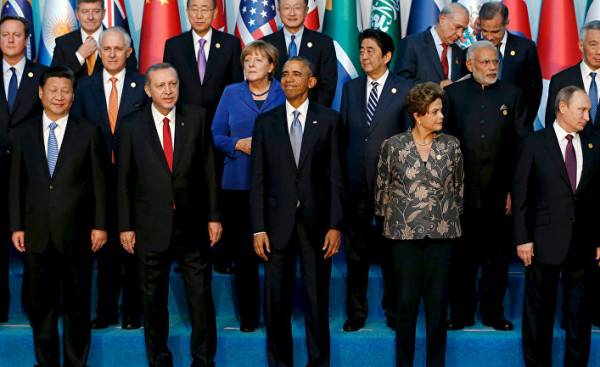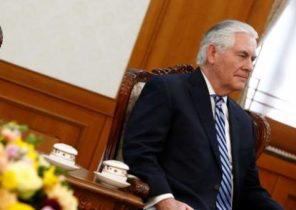
In London this month, Chinese President XI Jinping will hold a summit many leaders from 65 countries participating in the initiative “One belt, one road” (opop) is an innovative program that will provide an opportunity to invest billions of dollars of investment in infrastructure projects in Asia, Africa and Europe. Despite the serious economic study of the project, the response was mixed.
The main purpose of the initiative opop is the development of material relationships: effective infrastructure increases productivity and encourages investment and reduces costs in manufacturing. With effective channels for the exchange of goods and well-developed information networks, accelerating economic growth, growing the economy and reduces inequality.
The good news is that such an infrastructure can be created cost-effectively and with high rates of return. The key to achieving these goals are collaborative efforts using the comparative advantages of each participating country, financial capital, technological know-how, logistics or building capacity, raw materials or even products for industrial purposes. This approach could boost the development of countries with low income and help developing economies avoid the dreaded middle-income trap.
But the work on the creation of material relationships requires not only huge amounts of funding; also needed coordinated policies and harmonization of regulatory legislation. In the short term, investment in infrastructure projects can prevent serious political, sovereign and financial risks.
First and foremost, there is a risk that political leaders prioritize short-term interests than long-term prospects. For example, they may try to win votes by reducing road tolls or water rates, that will bring losses in the implementation of good infrastructure projects. They may lack motivation to search for Finance for large projects, if these actions will not lead to additional votes.
Not improve the situation and the fact that many countries are hanging on the hook of public debt that hinders their attempts to borrow funds in multilateral development institutions. With limited budgetary resources, governments may need to take the politically difficult decision to levy new taxes to continue investment in infrastructure. They can also reduce investment in other critical areas such as education, healthcare or environmental protection.
Private investors, in turn, may not want or can not afford to freeze illiquid assets on a long term construction and investment projects. At the best of times it was a lengthy process; and in developing countries with weak institutional capacity, these processes often significantly delayed, resulting in enormous additional costs.
National authorities in many countries are trying to solve this problem by improving management and creating a favourable environment for infrastructure investment, including through promotion of public-private partnerships. But progress in this direction was achieved rarely and in small scale.
China sees all this. He understands the pressing needs of developing countries for investment in the construction of roads, Railways, power plants and power grids, airports and seaports, as well as the challenges these countries face in the performance of such work. And everyone is well aware of the potential benefits of improving transport links, especially if they go beyond the Asia-Pacific region.
Since the initiative opop China is often accused of trying to gain greater control over the developing world, and even replaced USA as the dominant world superpower. Some observers, pointing to the historical example, warn of “the Thucydides trap”: a rising power will eventually try to challenge the existing order.
But such warnings ignore the most important lesson of this example: competition almost always ends badly. China is well aware of how the Thucydides trap has ensnared both parties — the dominant power and Challenger, even after the Challenger thought he had won. This, however, did not dispel the injected fears of politicians about China and its initiatives opop.
Sri Lanka is a case in point. Until recently, this country has welcomed and even asked for investments in infrastructure from China. But when politicians raised doubts about the intentions of China, the prevailing mood towards China has changed from a positive assessment in indignation. When these policies received financial support from the United States and India, but the money never came.
Today, the government of Sri Lanka has no other choice but the resumption of relations with China. Fortunately for Sri Lanka and other participants in the initiative opop, China does not have malicious intentions. His real goal is to lead the process inclusive and collaborative integration, which will benefit all participants.
In fact, China is the most prepared country for such work. In the US, long ago, there is a need for serious infrastructure modernisation and progress in its implementation, among other factors, delayed policy. In contrast, China is clowminzer D. Sachs, “…showed extremely high efficiency in the construction of large and complex infrastructure,” which “complements industrial capital” and “attracted foreign private capital and technology.”
Of course, China can be accused of promoting their own interests in any action that it carries out abroad. And to what extent such charges may be true, when the world power operates abroad, regardless of the motivation. Carried out under the leadership of the United States, the Marshall plan was directed not only to support the reconstruction of Western Europe after the Second world war, but also on the expansion of markets for export of US products to the containment of the Soviet Union.
This does not mean that China couldn’t do anything better than the initiative opop. On the contrary, it could be more effective in creating the economic environment for material relationships. And Chinese companies could be more attentive in the study and appreciation of local customs and culture, thus avoiding unnecessary friction with the local population and will contribute to environmental sustainability.
But these flaws are fixable, and they are eliminated by the administration of XI Jinping and Chinese companies that invest abroad. The bigger problem is to create a responsible organization to coordinate the many issues initiatives opop. In this issue, success will be possible only if the country will not allow politics to denigrate their decisions. There is no justification for refusing to accept the reasonable cost of the global initiative just because China is leading this activity.







